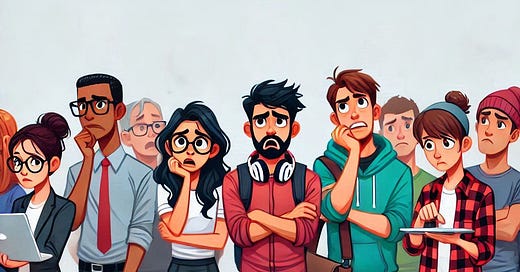This New York Times piece on the suddenly-brutal entry-level programming market is both useful and frustrating. It’s good to see at least a little public acknowledgement of a fact that has outsized symbolic importance: the bottom fell out of the coding job market more than two years ago. This is particularly hard on those hustling to break into the field given that, for years, elite society has said that getting into computer science was a guaranteed path to the good life. It’s remarkable, just how relentlessly that message has been delivered: for programmers, this is a land of milk and honey. All that was required to change your fate was to learn to code.
What’s the reality?
Compared with five years ago, the number of active job postings for software developers has dropped 56 percent, according to data compiled by CompTIA. For inexperienced developers, the plunge is an even worse 67 percent.
“I would say this is the worst environment for entry-level jobs in tech, period, that I’ve seen in 25 years,” said Venky Ganesan, a partner at the venture capital firm Menlo Ventures.
Not great.
Well, it happens that if you’re a talented and experienced coder, if you have a resume and good references, your job prospects are very good indeed. That hasn’t changed. But then, that was always part of why the whole “learn to code” discourse was misleading, because so much of the perception of the life of professional programmers was based on conditions for the elite in the profession. Yes, it’s probably great to be a senior programmer at Google or Apple or Microsoft! Experienced and respected programmers, the kind of people who have a deep set of connections and an impressive resume, are still in an excellent position to get the really choice gigs. But of course those weren’t the jobs that the large majority of new entrants were going to be accessing, even if they were fortunate when they went on the market. They were going to be fighting to get far more modest jobs - good jobs, in general, enviable jobs, but coveted by an ever-growing number of competitors in a field facing a structural slowdown. Which leads to why I found the piece frustrating.




